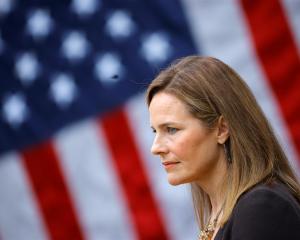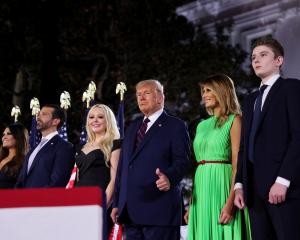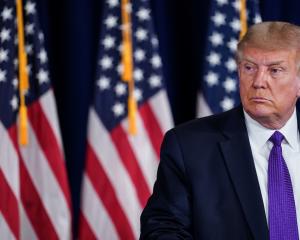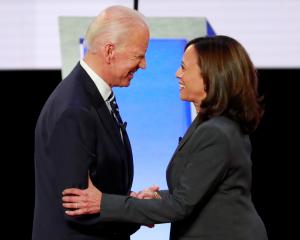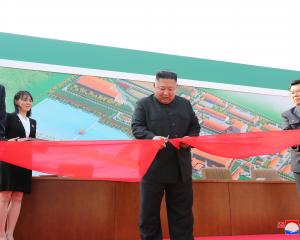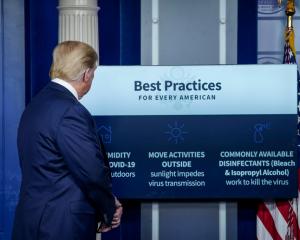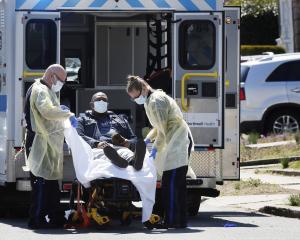The announcement last week that North Korea has agreed with the United States to halt nuclear and long-range missile tests and suspend its uranium enrichment programme in return for thousands of tonnes of food aid is a welcome sign of progress in the isolationist Stalinist regime.
But those whose task it is to monitor the routine belligerence and overheated rhetoric of Pyongyang will not be sleeping easy just yet.
This is not the first time the errant dictatorship has made concessionary overtures to the West.
In the past, it has later reneged on them and reasserted its habitual hostile pose. Negotiating with North Korea has long been one of the most difficult, frustrating and, frequently, fruitless tasks of international and US diplomats, but the most recent meeting between senior officials of both countries, held in Beijing last month, spills at least some light on to an increas- ingly gloomy geopolitical canvas.
There may even be reason to suppose that last week's revelation represents a genuine breakthrough. Following the death late last year of Kim Jong Il, the regime has a new leader in his youngest son Kim Jong Un. Seasoned Korea watchers have been looking for the first indication of the new man's approach to the outside world - and in particular to the United States.
Kim Jong Un, while an unknown quantity, perhaps even still the figurehead of factions within the regime, has much to prove.
The secretive and at times paranoid government, with its commitment to a policy of "juche", or self-reliance, has presided over many years of food shortages and famine.
If the new leader can now alleviate this, he could bolster his standing within the regime as well as consolidating his general popularity.
He may well also be seeking a broader equilibrium in the country's external relations: Pyongyang has long been reliant on China and last week's overture may be a move to lessen its dependency on its super-power neighbour.
Progress made by the similarly recalcitrant generals in Burma in re-establishing links with the West will not have gone unnoticed.
While rationality has not always appeared to play a dominant role in North Korea's foreign policy, it may have come to see the advantages of greater openness and dialogue.
Conducting its affairs in determined isolation, and routinely adopting an attitude towards the West of almost comic-book belligerence, has earned Pyongyang a reputation somewhere between pariah and international problem child. President George W. Bush famously referred to the regime as being part of the "axis of evil".
The regime's actions in abruptly ending the Six Nations talks aimed at curtailing its nuclear weapons ambitions, and simultaneously expelling the International Atomic Energy Agency's inspectors, seemed calculated only to exaggerate this view.
It is known to have tested nuclear weapons in 2006 and 2009, and its uranium enrichment programme is thought to have produced enough weapons-grade plutonium to arm six to eight warheads.
Last week's "breakthrough" on halting nuclear tests and long-range missile launches and agreeing to readmit the IAEA's inspectors will see the country receive up to 260,000 tonnes of food aid from the US. It is unclear exactly what this will comprise and how its distribution will be monitored.
While cautiously welcoming of the latest rapprochement, the real ambition of the US and other countries - South Korea, Japan, Russia and China - which exist in North Korea's unpredictable orbit, is resumption of the Six Nations talks.
This would signal that the country, headed by the new young dictator, genuinely wishes to rejoin the international community and is not simply playing regional power politics.
This year, 2012, is the centenary of the birth of the founder of the ruling dynasty, Kim Kim Song Il - grandfather of Kim Jong Un. Re-admission to the tribe of nations, extended and ongoing relief from the famines which have ravaged the country, and receipt of the many other benefits concomitant with more open relations with its neighbours and the US, would do more to stamp the youngest Kim's authority and style on his regime than more of the usual, familiar posturing.
Certainly those sleepless Korea watchers will be hoping that last week's "talk" is followed by concrete and sustained action.


